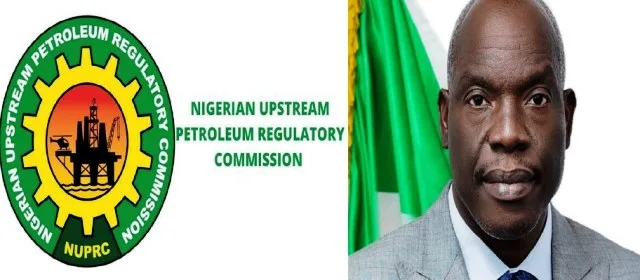Contradictory Figures Emerge
Nigeria’s crude oil production data has once again brought confusion to the industry. While the Nigerian National Petroleum Company Limited (NNPC) celebrated a daily output of 1.8 million barrels per day (bpd) of crude oil and condensate, figures from the Nigerian Upstream Petroleum Regulatory Commission (NUPRC) paint a different picture. According to the NUPRC, production stood at 1.538 million bpd in October, creating a significant disparity of 270,000 barrels.
“This discrepancy raises questions about accountability and transparency in our oil industry,” said Lagos-based energy analyst, Samuel Adekunle. “It’s a matter of national interest because accurate data informs critical policy decisions.”
Join our WhatsApp ChannelThe Role of NUPRC in Data Oversight
As the upstream regulator, NUPRC’s mandate includes tracking Nigeria’s oil production. Their records show a consistent lag in meeting OPEC’s adjusted quota of 1.58 million bpd, a figure itself scaled back from the original 1.8 million bpd due to years of missed targets.
“Statutorily, NUPRC’s data is what counts,” noted Professor Amina Yusuf, a petroleum economics lecturer at the University of Port Harcourt. “The NNPC’s figures may reflect aspirations, but they don’t match the operational realities documented by the regulator.”
Disparities Spark Questions Among Citizens
The divergence between the figures is not just a technical issue—it resonates with ordinary Nigerians who feel the economic impact of reduced oil revenues.
John Okoro, a taxi driver in Lagos, shared his frustration: “They talk about production numbers, but we don’t see the benefits. If they can’t agree on how much oil we produce, how can we trust them with our money?”
Similarly, in Isolo, Lagos, trader Fatima Ibrahim expressed skepticism about the celebrated milestones. “Every month, it’s the same story of achievements, but our economy remains stagnant,” she said.
READ ALSO: Oil And Gas Sector’s Contribution To Nigeria’s GDP Less Than 10%- NUPRC
Expert Analysis on Oil Theft and Vandalism
The NNPC often cites oil theft, pipeline vandalism, and ageing infrastructure as reasons for production deficits. However, experts argue these explanations are no longer sufficient.
“While theft is a factor, it can’t explain all the gaps,” said oil and gas consultant, Dr. Emmanuel Bassey. “The industry also suffers from underinvestment and inefficiencies at multiple levels.”
This underinvestment is evident in the year’s production trends. NUPRC data reveals Nigeria’s highest output was in January at 1.64 million bpd, with fluctuations since then, undermining claims of sustained recovery.
Security Efforts and Production Claims
NNPC’s Chief Executive, Mele Kyari, highlighted recent efforts to boost output, including enhanced security measures and stakeholder collaboration. “We’ve escalated production to expected levels, and we’re optimistic about hitting 2 million bpd by December,” Kyari stated during a press briefing.
However, skeptics remain unconvinced. “Security improvements are commendable, but they’re not a magic bullet,” said Musa Ibrahim, an oilfield engineer. “Infrastructure upgrades and investment in technology are equally critical to achieving sustainable growth.”
Voices of Concern
For residents of oil-producing communities, the production discrepancies symbolise broader governance issues. In Rivers State, youth leader Tonye Briggs called for greater accountability. “Our communities bear the brunt of oil exploration, yet the numbers don’t add up. Who benefits from this mystery?”
Similarly, environmental activist Ngozi Eze pointed out the social costs. “We talk about production figures, but there’s little discussion about the environmental damage and the livelihoods destroyed in the process,” she said.
Global Implications of Inconsistent Data
Beyond national concerns, the inconsistency affects Nigeria’s standing in the global oil market. Analysts argue that unreliable data undermines trust among international partners.
“Investors need clarity, not contradictions,” said Dr. Yusuf. “Such disparities weaken Nigeria’s negotiating position within OPEC and on the global stage.”
A Call for Reform
As Nigeria grapples with these production puzzles, experts and citizens alike are calling for reforms. Accurate data, they argue, is a critical first step towards addressing the industry’s long-standing challenges.
“The country needs to prioritise transparency,” said Adekunle. “Only then can we hope to restore confidence in our oil sector.”
For many Nigerians, the gap between NNPC’s celebrated milestones and NUPRC’s sober realities highlights a deeper issue of trust. Until the numbers align, skepticism will continue to shadow the industry’s claims of progress.
Emmanuel Ochayi is a journalist. He is a graduate of the University of Lagos, School of first choice and the nations pride. Emmanuel is keen on exploring writing angles in different areas, including Business, climate change, politics, Education, and others.


















Follow Us